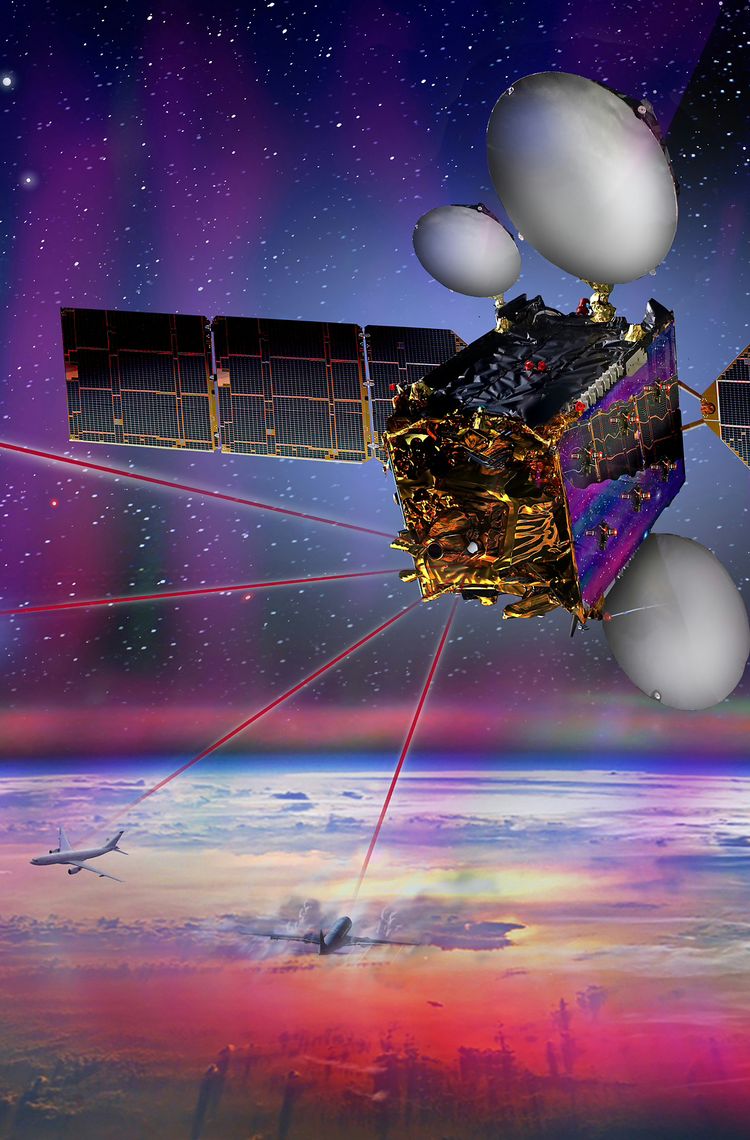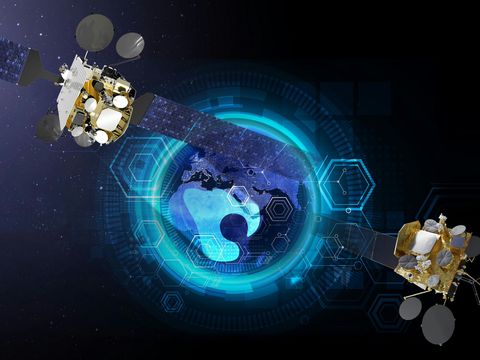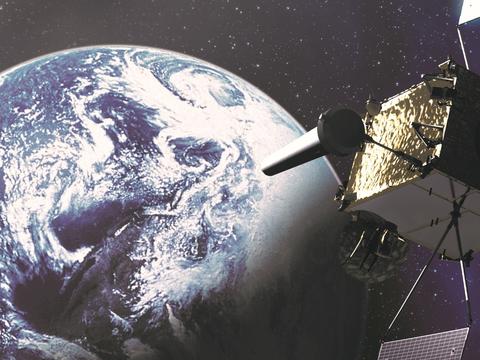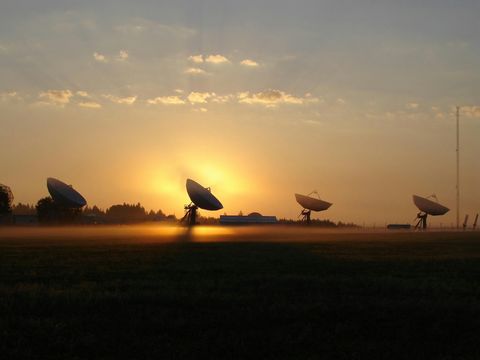A pioneering and revolutionary service
Space Data Highway™ (SDH) is a laser communication data relay service partnership between ESA (European Space Agency) and Airbus to transmit large quantities of vital data down to Europe (including imagery, video and voice) making the information available in almost real-time.
The Space Data Highway utilises the European Data Relay System (EDRS) communication infrastructure, owned and operated by Airbus. It enables users to relay data from both Low Earth Orbit (LEO) satellites and airborne platforms through both laser communication and radio frequency (RF) bands.
With more than eight years of successful in-orbit services, the Space Data Highway has demonstrated its high reliability, positioning the European industry as a leader in the development of space-based laser communications technology. The Highway encourages the development of future use cases for laser communications, including cross-atmospheric applications.
The Space Data Highway contributes to the autonomy, resilience and innovation potential of Europe’s space capability.
High-volume data transfer via laser communications
The Space Data Highway represents the first ever service to make use of laser communications technologies, capable of speeds in the order of several gigabit per second, which cannot be reached with traditional RF solutions.
The Highway enables the transfer of time-critical and sensitive data. It allows faster and longer access to air and space assets. Laser communications provide the most secure means of transferring information, with the added benefit of providing the highest data rates. It allows large volumes of data generated in areas of conflict to be transferred without detection, interception and/or interruption. This provides military users with an unprecedented level of stealth and resilience within hostile electronic warfare environments.
Advantages of Space Data Highway
The applications are very diverse including military communications; intelligence, surveillance and reconnaissance (ISR); maritime surveillance; environmental change monitoring; and emergency response. Among the key benefits are high-volume data transfer without using ground networks, improved data latency at global scales, enhanced reactivity and routing of data over secure and trusted infrastructure.
The Space Data Highway currently offers transfer rates of up to 1.8 Gbps, with transmission volumes of up to 40 terabytes per day.
Space Data Highway: a public-private partnership
The EDRS laser terminals were developed and built by TESAT-Spacecom, an Airbus subsidiary, and funded by the German Aerospace Center (DLR). The European Commission is the first Space Data Highway customer. The Sentinel-1 and Sentinel-2 Copernicus satellites are equipped with EDRS-compatible laser communication terminals that significantly accelerate the delivery of large volumes of time-critical data to Earth monitoring centres within Europe.
Today ESA’s Copernicus Sentinel planning office routinely relies on the scheduling of Space Data Highway communication links as a complement, and potential alternative, to their direct X-band acquisitions of data.
The management of the data relay connections is controlled by Space Data Highway’s Mission Operation Centre which operates 24 hours a day, seven days a week at Airbus premises near Munich. The centre receives transmission requests from customers, programmes the space and ground segments and monitors communications performance.
In 2020, the Space Data Highway service was extended to relay data in Ka-band to/from the International Space Station’s Columbus module, providing a European capability alternative and complement to NASA’s TDRSS.
In 2024, the Space Data Highway service reached the milestone of 80,000 successful laser connections during its first eight years of routine operations. With a reliability rate of 99.53%, these connections downloaded more than 2.5 petabytes of data from space.
The latest Space Data Highway news
in the spotlight
-

Airbus and VDL Group join forces to produce an airborne laser communication terminal
Press Release
Defence
Airbus and VDL Group have signed a partnership agreement for the development and manufacturing of a laser communication terminal for aircraft, known as UltraAir. -
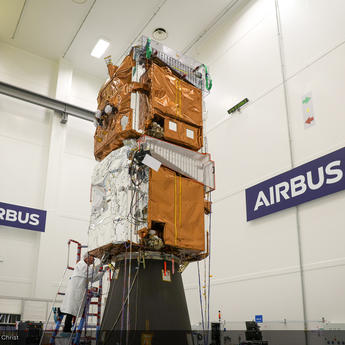
Final Pléiades Neo satellites ready to join rest of family
Press Release
Space
-

Pléiades Neo satellites arrive in Kourou for launch
Press Release
Security
-

Launch of the second SpaceDataHighway satellite
Press Release
Company
-

Airbus and JSAT sign cooperation agreement for the third SpaceDataHighway node
Press Release
Company
